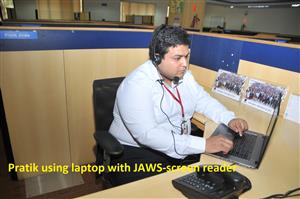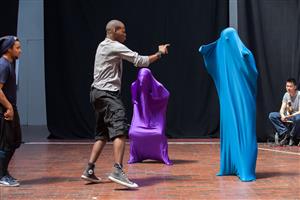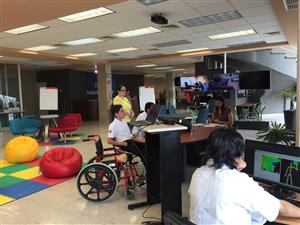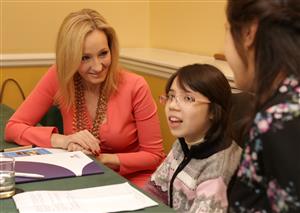Search Results
Search
Filter results
Advanced Filters
Your search returned 280 Solutions
-

A low-cost approach to early childhood development
Sightsavers has developed a model of Early Childhood Development and Education (ECDE) based on existing services and cost-effective methods. Sightsavers works together with local community-based childhood centres, produces learning materials and provides specially adapted bicycles to transport the children.
Sightsavers, Early Childhood Development in Malawi, Malawi -

Creating an inclusive strategy for a multinational company
Wipro Ltd. is a global IT- and consulting company with a workforce of more than 170,000 people. In 2009, Wipro launched a formal Disability Inclusion Policy Framework and governance mechanism to create an inclusive environment within the company, benefitting more than 2,000 people with various disabilities.
Wipro Ltd., inclusive company strategy, India -

Theatre arts programme for youth with disabilities
‘Access to Theatre’ is a free inclusive arts programme designed to help young people develop artistic and communication skills. Developed in 1994 by Partners for Youth with Disabilities (PYD) in the United States, the four-week programme has about 65 participants each year.
Partners for Youth with Disabilities, Access to Theatre, United States of America -
Transforming special schools into Support Centres
The project advocated for the establishment of support centres or the transformation of special schools into support centres in 18 districts of three provinces in Vietnam. MCNV provided technical support for the centres to mandate the early detection, early intervention, and support for Inclusive Education for children with disabilities.
Medical Committee Netherlands-Vietnam, Vietnam -
Empowerment youth through storytelling and digital media in sub-Saharan Africa
Tai Tanzania: Offers non-formal education with digital media and storytelling. Addresses issues such as albinism and autism. Utilises YouTube, school classes, radio and TV stations and other NGOs to disseminate information.
Pamoja (Inclusive) Project, Tanzania -
Moving step-by-step towards an inclusive university
DoBuS supports students with disabilities to graduate and implements structural changes based on the experiences gained in the counselling service with the aim of reducing as far as possible the extra work that students with disabilities have to master.In 2014, more than 300 students and 100 applicants with disability were counselled per semester.
University of Dortmund, Germany -

Providing free space to develop technological skills for young people at risk
The Democratizing Innovation in the Americas (DIA) Inclusive Lab provides youth with and without disabilities a free space to learn digital and technical skills and to develop new ideas using adaptive and high-end technologies such as 3D printers, laser cutters, screen readers, and voice recognition programmes.
Trust for the Americas, DIA Inclusive Innovation Lab, Mexico -

Changing a whole country´s approach on children´s institutions
Together with the Moldovan Government, Lumos has promoted an integrated policy and programme of deinstitutionalisation. Since launching the programme in 2007, the number of children in institutions has dropped by 86 per cent and since 2010, more than 6,000 children have been admitted to inclusive mainstream school.
Lumos Foundation, Moldova -

Transitional learning centres in rural and displaced settings for youth with disabilities
Maple Leaf Early Years Foundation (MLEY), Nigeria: Provides education to children from low-income backgrounds and displaced camps. Grew from 50 beneficiaries in 2018 to 1,000 in 2023, including youth and mothers.
Inclusive education in emergencies in transitional learning centres, Nigeria -
Building an inclusive labour market
Due to the Employment Protection Act No. 80 lesser capability because of age, illness or acquired disability is not an objective ground for dismissal and employers must make all reasonable efforts to retain the worker. As a result in Sweden 50% of disabled persons with reduced ability to work are employed.
Government of Sweden, Building an inclusive labour market, Sweden